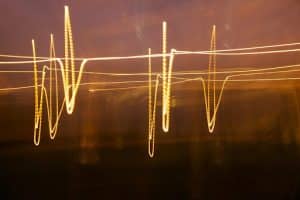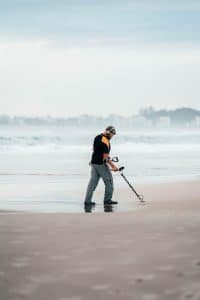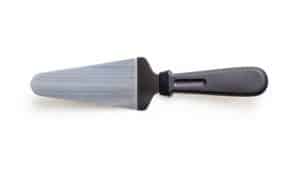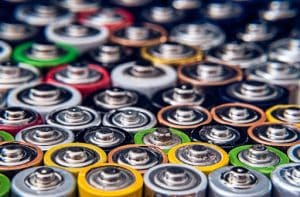Types Of Metal Detectors
The world of metal detecting can seem quite as complex as complex can get; you would find this out for yourself as a beginner trying to make headway in the field. Ordinarily, it is actually not that elaborate – the only things you have to worry about when you are in the hobby are where to and how to prospect. This comes naturally to committed people, so it’s not that hard a task. What makes it confusing though – the only time you would really be confused, is when you are a beginner.
One of the things that might confuse you is the broad range of metal detectors on the market. You might initially have figured out that there are different brands and types but probably didn’t know that the differences were going to be so functionally oriented. Do not fret, we have all been there. In fact, we are going to help to confer upon you in this succinct but educational piece, the necessary knowledge needed to pick the best metal detector on the market. By the time you are done with this, picking one for any situation you find yourself in would be as easy as pie.
Types of metal detectors
As we mentioned earlier, the process of picking metal detectors mandates you to make your choices largely based on function. You can also consider the possibility of added features, level of expertise required to operate, cost, and quality. For the record, there are tons of brands and types out there. As a beginner though, we advise that you limit your choices to these three:
- The Very Low-Frequency metal detectors (VLF)
- The Multi-Frequency Metal Detectors
- The Pulse induction metal detectors
We’ll start with the VLF metal detectors.
The Very Low-Frequency metal detectors (VLF)
These are metal detectors that take the word “mainstream” very seriously. They are presently the most common on the market and as such, are quite cheap compared to the rest, and are considered the easiest metal detectors to operate. These metal detectors work by using two coils to measure phase shifts in transmitted and returned frequencies; they use double coils for this (one acts as the transmitter, while the other acts as the receiver)
To understand how metal detectors work, let us understand the basic properties of metals. Metals, as a group, share a lot of properties with each other including those not limited to the ability to produce their own magnetic fields. Ordinarily, this goes unnoticed until, say, a person whips out a metal detector. The transmitter could broadcast the electrical currents into the ground and receive no feedback until these broadcasts hit the magnetic field of a metallic object. As these currents bounce back, the receiver coil receives them, and then alerts the person using the device through an installed signal; the signal might come as a beep or as a consistently flashing LED.
Pros of using a VLF
- It is essentially all-purpose
- It is user-friendly and easily operable
- It is the cheapest option on the market
- It has a long battery life
- It can be amused in a variety of situations
- It is lightweight
Cons of using a VLF
- It is not very sensitive
- It has only one frequency setting
- It does not do well with interference
Multi-Frequency Metal Detectors
Let us explain the concept of operational frequency to you. The operational frequency of a metal detector is the number of electromagnetic waves that the coils are able to produce within a specific amount of time. Consider the limits of the VLF metal detector. Amongst these is that it operates on a single operational frequency. Not bad for a beginner’s tool, but not exactly a stellar record either.
Multi-Frequency Metal Detectors were developed as the alternative. As their name implies, these are metal detectors that have the ability to operate on multiple frequencies at a time, broadening the scope considerably over that which is accessible to VLF detectors. While it is an impressive type of detector, it should not be confused with the selectable frequency detector, which also has access to a broad range of frequencies, but has the ability to use only of these at a time. Since Multi-Frequency Metal Detectors have better features than the VLF, they are expected to be more expensive.
Pros of using Multi-Frequency metal detectors
- Multiple frequencies can be used at a time
- It can detect metals buried deeper than usual
- Interference does not bother it much
- It is versatile
Cons of using Multi-Frequency metal detectors
- It is pricier than VLF metal detectors
- Information about the frequencies that have been calibrated into the device is not usually divulged to the owner
Pulse Induction (PI) Metal Detectors
Pulse induction metal detectors are detectors that use a single coil to transmit and receive bursts of electrical current into the ground. These bursts of current usually last around a millisecond each, consistently repeating until they find a hit.
Pulse induction metal detectors utilise pulse induction technology, a technology which is characterised by the creation and collapse of an electromagnetic field. This phenomenon is the pulse. A current high in amperage is projected through the coil. The collapse of this induces a sharp increase in voltage that can be detected by the receiver. This increase in voltage is usually affected when the electromagnetic field is met with the field around a metallic object. This delay is then picked up by the receiver. At best, this is a layman’s overlay of what happens with pulse detectors.
Pulse induction metal detectors are very expensive but are definitely worth the price. They can be used as gold detectors and are probably the best metal detectors for sale on the market for beginners.
Pros of Pulse induction metal detectors
- They are one of the best metal detectors
- They can be used to prospect gold
- They detect deeply
- They can be used on mineralised grounds
Cons of Pulse induction metal detectors
- They are pricey
- They do not have discrimination features
Wrapping Up
If you would rather look for a metal detector hire service, contact us at Lucky Strike gold. Go through our catalogue, pick what is best for you, and enjoy your prospecting. Those who want to buy metal detectors in Australia are welcome too.





















